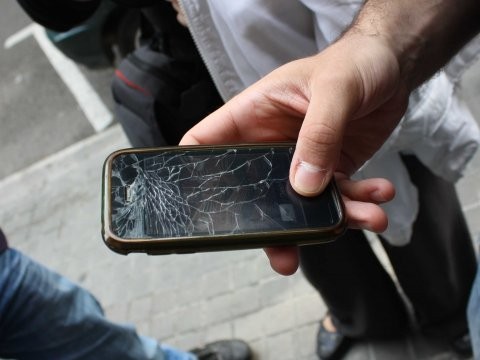Don t Go Broke Buying Bankrupt Stocks
Post on: 6 Май, 2015 No Comment

Sometimes, when stocks drop precipitously, they can easily over do it on the downside, as panic-selling ensues. These large declines can provide an attractive entry point for investors. The problem is that the biggest declines in stocks often occur the day that a company files for bankruptcy. Does that mean that bankrupt stocks can be a good buy? No, although some people don’t realize that. Before buying that company that just filed Chapter 11. know the facts, and find out why any amount of money put in is bound to be lost. (To learn more details about a Chapter 11 filing, refer to An Overview of Corporate Bankruptcy . )
When a Company Liquidates
Companies do not want to go bankrupt. Management will lose their jobs, and usually have equity at risk in the company. Companies declare or get forced into bankruptcy as a last resort, because they are having trouble paying their debt and need to gain protection from creditors. If the company liquidates or reorganizes, it needs to pay back everyone else in line before the common shareholders.
The hierarchy of claims goes like this: Bondholders including all classes (ie. subordinated. unsubordinated. secured. unsecured ) have first claim to any assets or payments. After that the company may need to make payments for taxes, employees, trustees, etc. Then comes preferred equity holders, and, if there are any, the common equity holders get the leftovers. It’s unlikely that shareholders receive anything.
An example of this was Delta Airlines. Delta filed Chapter 11 in 2005 and, following the filing, common shares traded over the counter on the pink sheets. Under its plan of reorganization, Delta was to issue new shares upon emergence from bankruptcy and cancel the old shares, with holders receiving no value. Delta even set up an online Restructuring FAQs for Investors. where they specifically outlined how old shareholders will receive nothing. The website stated:
The company also explicitly pointed out: Since the expected value of the Company will be less than creditors’ claims, we will not be able to exchange ‘old stock’ for ‘new stock’.
Despite this clear declaration that holders of old stock would receive nothing, shares exchanged hands at 13 cents just a week before the shares were set to be canceled. Thirteen cents doesn’t seem like a lot of money, but for those who were buying 10,000 shares, the loss a week later was a very real $1,300.
The other reason why a bankrupt stock won’t trade at zero is because in rare cases some value may emerge for the common shareholders to claim. This will occur in a situation where the company is able to sell assets for higher than expected prices and can pay off everyone in line, and still have some left over. This, I remind you, is very rare. As stated above, the reason a company declares or gets forced into bankruptcy is because it cannot afford to pay its creditors. (Instead of investing in equity, some investors invest in distressed debt to make a profit; learn more in our article Distressed Debt An Avenue To Profit In Corporate Bankruptcy . )














